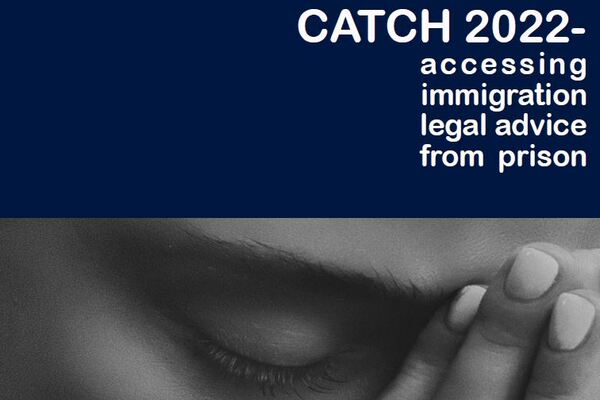BID has carried out a legal advice survey among people held in prisons for immigration reasons. The research is the first of its kind and demonstrates the multiple and intersecting barriers to justice faced by people detained under immigration powers in prison.
Key findings:
- 70% of participants do not have a legal representative for their immigration case.
- 89% of participants described, in their own words, the difficulties they had faced accessing justice while detained in prisons under immigration powers.
- 74% of participants were locked in their cell for 22-24 hours per day.
In February 2021 judgment in the case of SM v Lord Chancellor the High Court found the lack of legal advice in prisons to be unlawful. In response the Ministry of Justice introduced a telephone legal advice service for all people held in prisons for immigration reasons. Participants in our research have identified multiple and systemic problems which prevent the effective operation of that scheme including:
- Prison officers who are unhelpful, uncaring or discriminatory towards foreign nationals
- Delays and difficulties getting legal numbers added to a person’s pin, and lack of funds.
- People not being provided with a list of solicitors to call (as required by the scheme).
Those that had been unable to access legal representation in prisons described the myriad ways that it had affected their ability to fight their immigration case and secure release from detention. Many people highlighted the detrimental impact this had on their mental health. Those that were able to contact lawyers were often given inadequate reasons for why their case could not be taken on – such as the lawyer not having capacity; not providing legal aid; being too far away from the prison; or not dealing with immigration.
In the words of participants themselves:
“communication is very hard compared [to] IRC detainees. I have a cap of 5 legal [telephone] numbers. I add a number, wait for approval, when approved, I make a phone call only to get voice mail which costs me. Some other times it rings continuously with no answer and still I got charged for a call that never got answered. After few days, I have to apply for those numbers to be removed to free space[for] new numbers to be added. another 5-10 days. I call new numbers only to find out they no longer do immigration matters or do not take cases under legal aid.”
“Without legal advice I have been relying on other prisoners to fill out paperwork and to translate. I have been unable to appeal against my deportation order as neither I or others understand some of the legal questions. My bail though granted has come to nothing due to lack of accommodation and I have no one to challenge probation over this I have [been] resident in the UK for 22 years but without legal help I am unable to argue anything.”
“In prison, I cannot copy my original document or receive invitation calls from a solicitor who might have the capacity to take my case. This reduced my chances of getting representation. In this prison I cannot get my phone numbers from reception. I'm locked away from the outside world, cannot contact friends and family to get help or representation. How do I contact my friends for help?”
Our research adds to the large body of criticism from expert bodies, independent inspectorates and international human rights organisations that have criticised the use of prisons for immigration detention.
BID’s director, Annie Viswanathan, said:
"These results once again highlight the scale of injustice in our immigration detention system. Not only does the Home Office lock individuals up without trial, separating families and damaging vulnerable people, detainees are held in prisons and denied the legal representation that would enable them to exercise their fundamental right to challenge these decisions. With an increase in the number of people held in prisons for immigration reasons and an increase in the severity of prison lockdown regimes as a result of Covid-19, we call on the government to urgently end the use of prisons for immigration detention."





